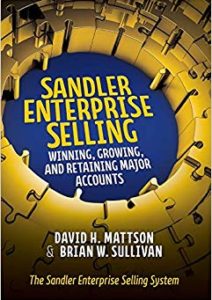The often-utilized original quote is attributed to both Teddy Roosevelt and John Maxwell but whoever used it first, truer words could never be spoken. It’s closely connected to what I often refer to as the four most important words in selling – “It’s not about you”. Understanding and internalizing these two maxims will go a long way in determining your success in selling and, truthfully, in life in general. Stop for a moment and think of someone you know who cares deeply about you. There, you can feel the warmth. Now, visualize someone who cares only for themselves, conceitedly dismissing others. Quite a different feeling, isn’t it? The title of this article differs a bit from Teddy or John’s words, introducing the most important acronym in our world of clients – KARE, and its focus on the caring that we must make visible in every customer interaction. KARE does this by providing a framework for understanding customers so well that you seamlessly serve them in the ways that matter most – to them!
How does KARE work? Consider that question in the context of kicking off 2025. Last year brought changes for all your customers. And you care deeply about what happens to your customers, don’t you? It’s more than sympathy, really, because your clients represent your future. So, while it’s important to care, your very business survival depends on your ability to KARE.
In selling, we work with logical groupings, bundling accounts in vertical categories like manufacturing and financial services. We also differentiate geographically, increasing efficiency by combining accounts by location. Organization size is another designation, connecting firms with similar revenues, numbers of employees or other metrics. And we always separate commercial from public sector accounts to be more effective in our efforts to win business and to serve. And while these categories are helpful, what do they tell us about the actual traits and tendencies of customers? How do they help us build meaningful and impactful strategies? And how do they help us at this promising time, the start of the 2025 selling year?
Think about this. In wildlife, we group creatures into designations that provide clinical value. How important is it, though, to simply know that two different creatures are both snakes? While King Cobras and Garter Snakes may be in the same classification, their individual traits and tendencies are quite different, to say the least. What about spiders? It would be much more valuable to be warned about what to expect from a Black Widow versus a Daddy Long Legs than just knowing they’re in the same family. While scientifically accurate, knowing creatures’ designations tells you nothing about how to prepare for them or what actions you should plan. Truthfully, the Black Widow and King Cobra have a lot in common. Scientific designations aside, they are both killers. Good to know? I should think so.
The same applies to your customers, although not at such a dangerous level. For understanding differences in terms of accounts’ traits and tendencies can be as valuable as knowing that you’re safer with a Garter Snake slithering around your bedroom than a King Cobra.
Over the last year, your customers have changed. What you understood twelve months ago is obsolete. So, how do you develop fresh understanding, not about their tactical groupings but about what you can truly expect from them in 2025? Changed traits. Changed tendencies. Enter KARE, the practical account profiling framework utilizing four categories – Keep, Attain, Recapture, and Expand. Let’s consider each one. Keep accounts are your average current clients. They’ll never change your life, but they generate the bulk of your revenue. As such, you’re happy to have them. Attain accounts represent your profile prospects, those you actively target to win their business. Recapture accounts are previous clients that are currently inactive. Unlike past clients whom you consciously choose not to pursue, you’d eagerly welcome Recapture accounts back. Finally, Expand accounts are your most treasured assets – your truly strategic current client accounts that drive major revenues, profits and potential. Simply stated, they are your future.
Of course, one selling organization’s KARE accounts are different from another’s. As such, you craft KARE profiles with customized attributes specific to your business and then match your clients and prospects with the appropriate profiles. You’ve then earned the right to develop the common actions that apply to each category. For example, your actions for your Recapture accounts will focus on winning them back. While customized strategies will apply for some, your Recapture actions will apply to all past customers, saving you time and effort. The same applies to your Keep, Attain, and Expand accounts. The actions apply because, remember – the accounts in each profile share the same traits and tendencies. That’s the beauty of KARE profiles – they’re actionable!
For 2025, you must recognize your accounts’ changes. Some of your Keep accounts are likely vulnerable or may be on the verge of becoming Recapture accounts. Some Attain accounts may have a higher probability of becoming clients due to 2025 changes that increase needs for your products and services. Being actively aware of changes in accounts’ traits and tendencies positions you more effectively for a strong 2025.
Know your accounts well. But don’t be satisfied with knowing their 2024 selves. Many King Cobras and Garter Snakes have changed. Know and embrace their new traits and tendencies. Then, you’ve earned the right to deliver value in the new year because, of course, your accounts will know you KARE!












Comments